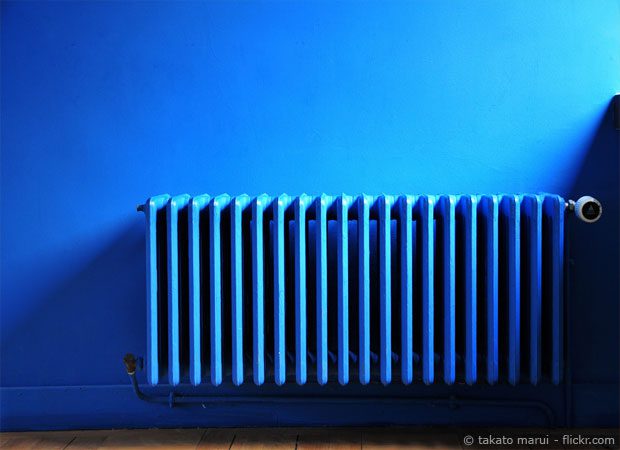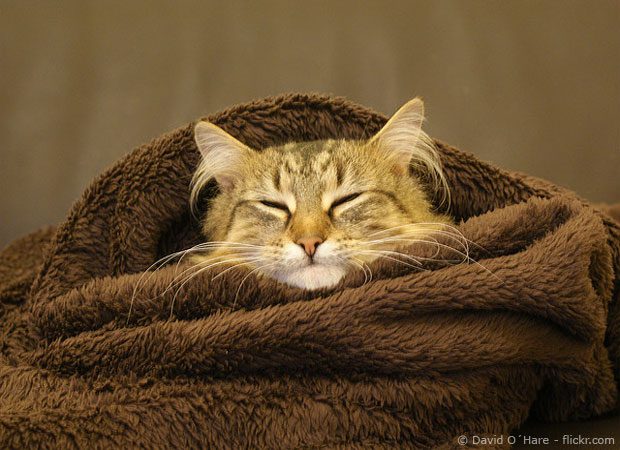About 80 percent of the total energy consumption is consumed by heating and hot water in German households. The potential for savings is correspondingly large, and many people are asking themselves the question "How do I heat properly??". With just a few and especially simple tips and tricks, homeowners can heat economically, heat smartly, heat environmentally and, most importantly, heat properly. How that goes, explains HausXXL.

Heating correctly: the 10 best tips
How to heat properly, show the 10 best tips and tricks. If you follow them, you can protect the environment, save on heating costs and take care of your own health.
- always provide a certain basic warmth
- Never turn off the heating completely, because reheating costs more energy than permanent heating
- When you are away, regulate the room temperature to 16°C, during longer trips to 12°C
- Programmable radiator thermostats automatically lower the room temperature when no one is at home
- Unnecessary costs arise from poorly adjusted heating systems
- Signs of this are u.a. low deposits of soot
- hydraulic balancing of the heating system helps
- Installer can use this to see where and how to correct the system
- Ideally, the right amount of water at the right temperature is always in the system at the right place
- If air collects in the radiators, the heating system is not working optimally
- If it bubbles and splutters, the heating system is probably not properly vented
- Drives up costs considerably
- The meter readers on the heating system provide information about the user's own consumption
- Anyone can use them to check the information in the heating bill
- If furniture is moved away from the walls, the heated room air can circulate better
- keep at least five centimeters distance to the walls
- Savings of up to ten percent
- Cladding or massive pieces of furniture do not belong in front of radiators
- proper heating also protects health
- Keep doors of individual rooms closed
- If, for example, the cool bedroom is heated with the warmer air from the living room, humidity enters the cooler room
- favors the formation of mold, and this harms health
- ventilate the house and apartment several times a day with the windows wide open
- in winter three, on warmer days 15 minutes of airing are enough
- When airing, the heating should be turned off
- However, the room must not cool down
- Valuable heat escapes through the smallest cracks in windows, doors or brickwork
- use sealing tapes, wool blankets, sealing rails or sealing brushes
- If the air enters the apartment from under an outside door, a tubular doorstop helps
- If the heating pipes are not insulated, energy is lost
- According to the German Energy Saving Ordinance (EnEV), consumers are entitled to have the heating system regularly inspected by a specialist company
- If you put reflective foils behind the radiators, you can reduce your heating costs by up to four percent
Clever heating: Pay attention to the room temperature
The living rooms must not be overheated. In the living room and kitchen, 19 to 21 °C is quite sufficient to create a comfortable room climate. In the bathroom, it can be a little warmer at 21 to 23 °C. In the bedroom, on the other hand, around 18 °C ensures a pleasant night's sleep. At night and during the day, when no one is at home, the temperature in all rooms can be lowered altogether. Children's rooms must not be colder than 16 °C. Temperatures between 19 and 22°C are perceived as comfortable and pleasant with a relative humidity of 35 to 60 percent.
Rooms Correct room temperature
| Living room, dining room | 20°C |
| Children's room, study | 22°C |
| Bedroom | 16-18°C |
| Bathroom | 20°C |
| House | 16°C |
Lowering the room temperature by just 1 °C reduces heating costs by about 6 percent. If you reduce the room temperature from 24 °C to 20 °C, you save between 20 and 25 percent of the heating costs!

Economical heating means environmentally conscious heating
Cozy and warm, yet environmentally conscious: If you heat sparingly and ventilate properly, you don't have to freeze and can still save money, live in an environmentally conscious way and protect the environment at the same time. With the following tricks, small investments and little effort, you can save a few euros and reduce CO2 emissions.
What to do CO2 savings per year Cost savings per year
| Use economy shower head | 375 kg | 290 euros |
| Insulate windows with sealing tape | 280 kg | 75 euros |
| Put insulation behind radiators | 25 kg | 5 Euro |
| Install new thermostatic valves | 540 kg | 135 euros |
| Ventilate radiators regularly | 65 kg | 15 euros |
| Close blinds/shutters at night | 160 kg | 40 euros |
| Have a heating report drawn up | 1.440 kg | 360 euros |
| Insulate heating pipes | 600 kg (gas), 750 kg (oil) | 200 Euro |
| Short bursts of ventilation instead of continuous ventilation | 500 kg | 125 Euro |
| Reduce room temperature by 1°C | 360 kg | 90 euros |
Heating is one of the biggest cost drivers in German households. Energy costs are at record levels, with each liter of heating oil and each cubic meter of gas costing about 50 cents and polluting the environment with about 2.6 kg CO2. But with modern technology, simple behavioral changes and low-investment measures, consumers can reduce their heating costs, heat in an environmentally conscious way and thus reduce the CO2 emissions caused by heating.
A modern heating system can save you money. Modern burners burn raw materials such as gas, oil or wood pellets optimally and thus get the most out of heating costs.
(Picture material v.o.n.u.: Villa (takato marui/Flickr, CC BY-SA 2.0), Cosy cat (David O'Hare/Flickr, CC BY 2.0))